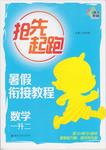Bicycles, roller skates and skateboards are dangerous. I still have scars (伤疤) on my knees from my childhood run-ins with various wheeled devices. Admittedly, I was a foolish kid, but I’m glad I didn’t spend my childhood trapped indoors to protect me from any injury.
“That which does not kill us makes us stronger.” But parents can’t handle it when teenagers put this theory into practice. And now technology has become the new field for the age-old battle between adults and their freedom-seeking kids.
Locked indoors, unable to get on their bicycles and hang out with their friends, teens have turned to social media and their mobile phones to gossip and socialize with their friends. What they do online often mirrors what they might otherwise do if their mobility weren’t so heavily restricted (限制) in the age of helicopter parenting. Social media and smartphones have become so popular in recent years because teens need a place to call their own. They want the freedom to explore their identity and the world around them. Instead of climbing out of windows, they jump online.
As teens have moved online, parents have projected their fears onto the Internet, imagining all the potential dangers that youth might face.
Rather than helping teens develop strategies (策略) to deal with public life and the potential risks of interacting with others, fearful parents have focused on tracking, monitoring and blocking. These approaches don’t help teens develop the skills they need to manage complex social situations. “Protecting” kids may feel like the right thing to do, but it denies teens the chances of learning as they come of age in a technology-soaked world.
The key to helping youth in the modern digital life isn’t more restrictions. It’s freedom — plus communication. Urban theorist Jane Jacobs used to argue that the safest neighborhoods were those where communities collectively took interest in and paid attention to what happened on the streets. Safety didn’t come from surveillance (监视) cameras or keeping everyone indoors but from a collective willingness to watch out for one another and be present as people struggled. The same is true online.
What makes the digital street safe is when teens and adults collectively agree to open their eyes and pay attention, communicate and work together to deal with difficult situations. Teens need the freedom to wander the digital street, but they also need to know that caring adults are behind them and supporting them wherever they go. The first step is to turn off the tracking software. Then ask your kids what they’re doing when they’re online — and why it’s so important to them.
1.When he was a child, the writer ______.
A. became disabled
B. spent much time outdoor
C. always stayed at home
D. was ignored by his parents
2.Teens go online mainly because ______.
A. online games mirror real life
B. they want to fight against their parents
C. online experiences make them strong
D. they need a space of their own
3.By mentioning “helicopter parenting” (Paragraph 3), the writer means parents ______.
A. remove any hidden dangers their kids may face
B. use helicopters to track their kids
C. prevent their kids from going to school
D. protect their kids too much
4.According to the passage, helicopter parents may make kids ______.
A. lose the chances of learning
B. handle complex social situations well
C. adapt to the digital world quickly
D. develop strategies to deal with public life
5.The main idea of the passage is that ______.
A. kids should be given freedom to deal with online risks
B. safe neighborhoods come from joint efforts of all
C. the digital street is a threat to kids’ safety
D. kids should be warned against potential dangers in society

 数学奥赛暑假天天练南京大学出版社系列答案
数学奥赛暑假天天练南京大学出版社系列答案 南大教辅抢先起跑暑假衔接教程南京大学出版社系列答案
南大教辅抢先起跑暑假衔接教程南京大学出版社系列答案